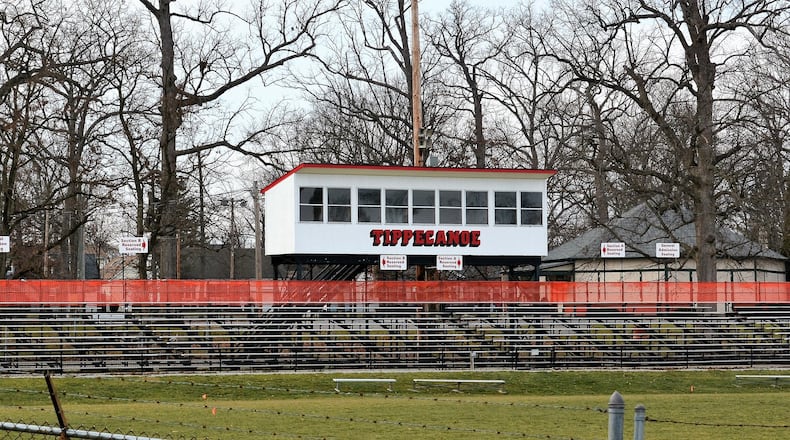The board was told the bleachers no longer could be used because they don’t meet ADA requirements and could leave the district liable if someone would be hurt. Options included removing the old bleachers and having those coming to events bring their own seating, or not holding sports and other events at the stadium until the bleachers were addressed.
Board members Rick Mains, Amber Drum and President Simon Patry supported that proposal May 23 while Anne Zakkour and Theresa Dunaway voted against it.
The vote was the same Friday after the board discussed the borrowing proposal for more than an hour, with some heated exchanges.
The money would come from the district’s 2.0-mill permanent improvement levy that was approved in 2018. The levy brings in around $720,000 a year, district Treasurer Melanie Fox said.
Patry said the board had received an email this week from Dunaway questioning if use of the permanent improvement levy would be “fraud” because of statements made in the past that the permanent improvement money would not be used for the stadium at City Park. The district leases the stadium from the city.
Patry said he reviewed the 2018 resolution seeking the permanent improvement funds. “Nothing in the resolution prohibits this use,” he said.
A project to improve the stadium through private funds has been under way, with two phases complete. The nonprofit Tipp City Association raised money for those two phases but said it is reorganizing and did not have money for bleachers. The bleachers were included in a project phase three plan.
“This is not part of the Tipp Pride project but to address an urgent need,” Patry said.
Zakkour said she was concerned about the proposal for several reasons, including the scheduling of the special meeting Friday without allowing time for public input on the proposal or more in-depth board discussion.
Dunaway said she was “shocked” to hear this week about the proposal to borrow against the levy funds. She said she thought the money would come from the general fund. She said the district needed to talk about other issues including school facilities and security. Zakkour made similar comments about facilities and security.
Stefanik said the district has the money to pay for the project from its funds but the financing option was suggested by financial consultants. The board, though, had the final say on how to pay, he said.
Drum said she had had community members thank her for the board “taking care of this problem.” Mains said he thought the proposal was “a reasonable option.”
About the Author
